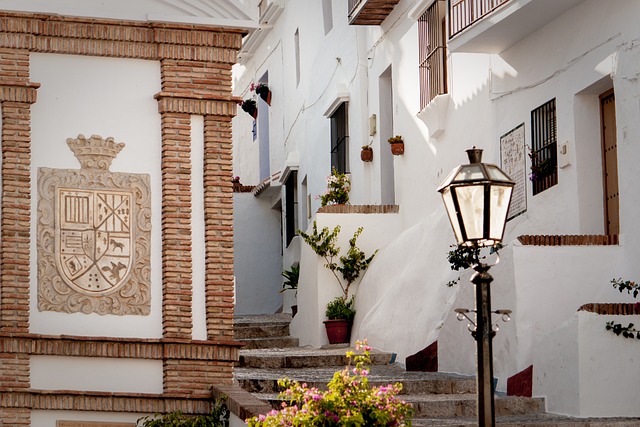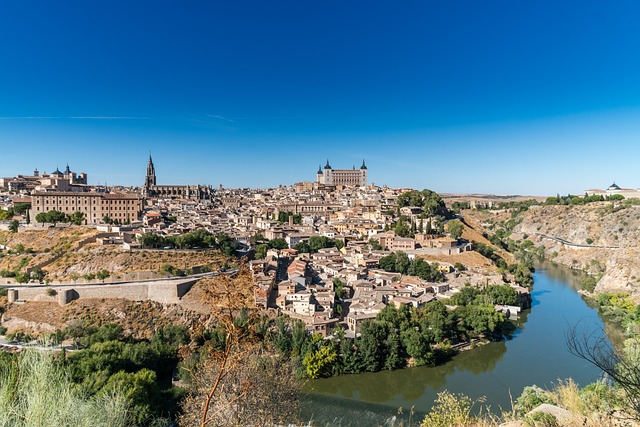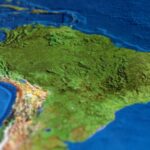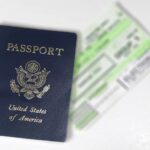
When choosing a travel destination, safety is the primary consideration for every traveler. For travelers planning to visit Spanish-speaking countries, here are the five safest Spanish-speaking countries in 2024. These countries not only offer rich cultural and natural attractions, but also due to their low crime rates, friendly local residents and good Recommended for infrastructure.
1. Spain
Spain, as one of the cultural and tourist centers of the Spanish-speaking world, has long attracted thousands of tourists. Whether it’s ancient cityscapes, rich artistic treasures, or laid-back Mediterranean beaches, Spain has its own unique charm that makes people forget to leave. Entering 2024, Spain’s security situation is generally good, especially in major tourist cities, such as Madrid, Barcelona and Seville, where public security has been effectively guaranteed. The Spanish government and police have strengthened public safety measures, especially the protection of tourists, to ensure that tourists can enjoy their travels in a safe environment.
security status
Spain’s big cities, especially Madrid, Barcelona and Seville, are popular hotspots for tourists, but they also face problems with thieves. Although overall crime rates are low, pickpockets and thieves are prevalent, especially in busy tourist attractions and public transportation systems. Places such as La Rambla in Barcelona, Puerta del Sol in Madrid and the historic center of Seville are areas where pickpockets are more active. In addition, crowded places such as subways and buses are also frequent places for thieves.
The Spanish police have set up special patrols and tourist police in tourist hotspots. These police are experienced in dealing with tourist-related issues and can provide help and resolve emergencies quickly and effectively. Big cities have complete public safety facilities and generally good public security. Spain’s first aid system is also very developed. Hospitals and ambulances respond quickly, so tourists can receive timely treatment when they encounter emergency health problems.
Medical facilities and public services
Spain’s medical facilities are very modern, especially hospitals and clinics in large cities, and almost all medical institutions can provide high-quality services. For tourists, medical services are not only convenient but also reasonably priced. Many hospitals and clinics provide English services, reducing the impact of language barriers. In addition, Spain has a well-developed public transportation system with extensive subway, bus and train coverage, which is very suitable for tourists’ daily travel. The city’s transportation network is smooth, ensuring that tourists can easily access major attractions.
Safety tips
- Safekeeping of valuables: In big cities such as Barcelona and Madrid, pay special attention to the safety of your personal belongings, especially in subways, buses, busy attractions and markets (such as La Rambla in Barcelona and Puerta del Sol in Madrid). Avoid exposing valuables in these areas, especially cell phones, wallets, cameras, etc.
- Prevent pickpockets: Pickpockets often use distractions to steal items. For example, they may bump into you on purpose in a crowded place or block your view with a large bag. In these situations, it is important to remain alert and try to keep your wallet and cell phone in your underwear pocket or a sealed backpack.
- Emergency contact information: In case of any emergency (such as theft, medical emergency, etc.), you can call the Spanish emergency number 112, through which all types of emergency services can receive help.
2. Costa Rica
Costa Rica, this Central American country known for its ecotourism and stunning natural landscapes, is not only a paradise for nature lovers, but also an ideal choice for those looking for a safe travel destination. With its national environmental protection policies, rich flora and fauna, and diverse ecosystems, Costa Rica has earned the reputation of being “one of the safest countries in Central America.” In 2024, Costa Rica continues to maintain a low crime rate, becoming one of the top choices for travelers to Central America. Still, some cities, especially the capital San Jose, still see occasional small-scale criminal activity.
security status
The overall security situation in Costa Rica is relatively good, and most tourist areas are safe. Major tourist cities and natural scenic spots (such as Monteverde, Arenal Volcano, Santa Teresa, etc.) have a large flow of tourists and strict public security control. However, in some large cities and towns, such as the capital San Jose, small-scale criminal activities, especially pickpockets and robberies, occasionally occur in certain areas. Despite this, Costa Rica’s police and security forces are relatively efficient, and most visitors have a pleasant experience there.
Costa Rica’s security advantage lies in the overall stability of its society and the local government’s emphasis on public safety. Especially in tourist hotspots, the presence of tourist police can effectively prevent criminal behavior and make tourists feel more at ease. The local residents are generally friendly and helpful, and many visitors will experience a strong warm and friendly atmosphere, which is one of the reasons why Costa Rica has become a popular travel destination.
Natural areas and outdoor activities
Costa Rica has many natural attractions, from tropical rainforests to volcanoes to beaches, each one is attractive. The eco-tourism industry here is very developed, and most nature reserves have strict management measures to protect the fragile ecological environment. However, visitor safety still requires special attention in some of the more remote areas, especially when hiking and trekking.
Some tourists may choose to hike in uninhabited areas or remote natural areas. Although these places are picturesque, they also carry certain risks. While hiking, some thieves may take advantage of tourists’ distractions to commit theft. Working with a local guide is an effective way to prevent these situations, especially in nature reserves away from cities.
Safety tips
- Property protection: Visitors should always be alert when hiking in tourist attractions and natural areas in Costa Rica. Especially in remote areas, try to avoid carrying large amounts of cash and valuables. A concealed backpack or fanny pack is recommended for storing valuables.
- Avoid working alone: Although security in Costa Rica is generally good, in some remote areas it is best to avoid traveling alone, especially in unfamiliar mountains and hiking trails. It’s best to travel in a group and choose a reputable travel agency or tour guide.
- Pay attention to wildlife safety: Due to Costa Rica’s rich ecosystem, many tourists choose to engage in activities such as hiking and wildlife observation. In this case, it is important to follow your guide’s instructions and avoid getting close to potentially dangerous wildlife (such as venomous snakes or big cats). In addition, understand and respect local ecological protection regulations and do not disturb or interfere with natural habitats.
Emergency contact information
The emergency contact number in Costa Rica is 911, which visitors can call directly in case of any emergency. In addition, Costa Rica’s tourist police are available through a specific tourist safety number and are primarily responsible for providing assistance and emergency services in tourist hotspots.
3. Uruguay
Uruguay is one of the safest and most peaceful countries in South America, known for its high quality of life and relatively stable social security. With low crime rates and efficient policing, Uruguay is recognized globally as a great destination for travel and long-term residence. Especially in the capital Montevideo and other major cities such as Canol and Pedro Blanco, Uruguay’s security environment is generally good. While there are a few crime incidents in these cities, overall, Uruguay’s crime rate is much lower than in many Latin American countries.
security status
Public security in Uruguay has always been maintained at a relatively stable level, especially in large cities such as Montevideo and Canol. As the capital and largest city of Uruguay, Montevideo has sufficient police force and quick response. Police patrols are often seen on the city’s streets, especially at major tourist attractions and business districts, making visitors feel safer in these areas. In addition, Uruguayan police have received professional training and are more efficient in handling various security issues to ensure that people’s daily lives are not threatened.
Still, like any city, cities in Uruguay have some safety hazards to be aware of. Small-scale thefts may occur in certain areas of Montevideo, especially in remote urban areas or on quieter streets at night. Uruguay’s social security is generally good, but in order to avoid unnecessary trouble, tourists should still remain vigilant.
Medical facilities and public services
Uruguay has a well-developed medical service system and provides comprehensive medical security. Most cities have modern hospitals and clinics. Doctors and medical staff are generally highly educated, and many hospitals are able to provide high-quality treatment services. Due to the high penetration rate of Uruguay’s public health system, tourists can receive timely medical help in case of sudden illness or injury. The capital Montevideo and other major cities have international standard medical facilities that can handle most medical needs.
Public transportation is also very convenient, especially in Montevideo, where the city bus system is efficient and affordable, and taxi services are widespread. In addition, Uruguay’s streets are generally clean and urban infrastructure is relatively well-developed, allowing tourists to comfortably enjoy local services during their travels.
Nighttime safety and precautions when going out
Although the security environment in Uruguay is good, tourists should still take some precautions when going out at night to avoid entering more remote or isolated areas. Especially in some outer areas of Montevideo, the security situation may fluctuate slightly at night, and some streets are relatively empty and lack sufficient street lighting. In order to improve the safety of traveling at night, tourists are advised to avoid going out alone during these periods, especially in unfamiliar or less populated areas.
If you plan to enjoy Uruguay’s restaurants, bars and nightlife areas at night, it is best to choose places that are located in bustling areas with dense crowds. This will not only provide greater safety, but also allow you to better experience the local cultural atmosphere. Most tourist hotspots and commercial areas have stricter security measures at night, so tourists can enjoy evening activities with peace of mind.
Safety tips
- Avoid going out alone: Although security in Uruguay is generally good, you should still avoid remote areas or back streets at night, especially when going out alone. Choosing a busy area or somewhere with a lot of people can greatly reduce the risk of encountering problems.
- Safekeeping of valuables: In places such as busy markets, shopping malls or tourist attractions, you should always keep your valuables safe and avoid exposing your wallet, mobile phone or other valuables to prevent criminals from taking advantage of them.
- Emergency contact information: Uruguay’s emergency contact number is 911. Visitors can call this number directly in case of any safety concerns or emergencies. The Uruguayan police responded quickly and were able to handle various emergencies in a timely manner.
4. Chile
Chile continues to attract tourists from around the world with its magnificent natural landscapes, rich cultural heritage and relatively stable security situation. As one of the safest countries in South America, Chile still maintains a low crime rate in 2024, especially in major tourist cities and nature reserves. Although there may be occasional petty crime in some poor areas and on the fringes of major cities, Chile generally has a relatively stable security situation and visitors generally feel safe in these places.
security status
Chile’s public security is relatively superior in Latin America. Especially in the capital Santiago and other major cities such as Valparaiso and Pichilemu, the Chilean government has maintained relatively low crime rates by strengthening police deployment, strengthening anti-crime measures, and increasing investment in public security. The city’s infrastructure is relatively complete, and the public transportation system is efficient and widely covered, making tourists’ movement between cities more convenient and safer.
The Chilean police respond quickly to various security incidents, especially in tourist-dense areas, such as the city center of Santiago and the port area of Valparaiso. The police often conduct patrols to ensure stable security. The residents of Chile are generally friendly and enthusiastic. Many tourists said that they received help and enthusiastic guidance from many local people during their travels.
However, like any large city, there are potential risks of crime in parts of Chile, especially in some poorer areas and more isolated neighbourhoods. Although these areas are far from tourist hotspots, visitors should remain vigilant when visiting, especially at night or in sparsely populated areas.
Natural areas and outdoor activities
Chile is a country with diverse natural landscapes, from the Atacama Desert in the north to the glacial lakes in the south, attracting a large number of nature adventure enthusiasts. Chile’s nature reserves and national parks have relatively complete facilities, and the national government and local authorities attach great importance to the management and protection of these areas. Many natural attractions are led by professional tour guides to ensure tourists’ safety and enhance their sightseeing experience.
Nonetheless, some of Chile’s natural attractions are located in more remote areas, especially in the southern polar regions and deep in the Atacama Desert, where safety is relatively low and visitors need to be particularly careful when visiting. When engaging in outdoor activities such as mountain climbing, trekking or exploring, tourists are advised to choose a reliable tour company and always travel with others and avoid traveling alone.
Urban safety and precautions
Chilean cities are generally safe, but like many major international cities, visitors still need to be vigilant at tourist attractions and on public transportation. Especially in crowded places such as Santiago’s subway stations and Valparaíso’s markets, pickpocketing incidents occur from time to time. Although these crimes are usually small-scale, tourists’ belongings can still be targeted by thieves.
To avoid encountering theft, tourists are advised to stay alert as much as possible in these high-risk areas, not to expose valuables, and to avoid placing wallets, mobile phones and other items in the outer layers of backpacks or pockets. Using an anti-theft backpack, fanny pack or concealed carry method can effectively reduce the risk of property theft.
Safety tips
- Avoid exposing valuables: During travel, especially in crowded tourist attractions, subway stations and transportation, avoid leaving valuables such as wallets, mobile phones and cameras exposed. It’s best to keep these items in a more secure location, such as the interior pockets of an anti-theft backpack.
- Be careful when going out at night: Chilean cities are generally quieter at night, but some areas, especially in the outer suburbs of Santiago, can be deserted at night. To ensure their own safety, tourists are advised to avoid traveling alone at night, especially in unfamiliar areas.
- Use caution when outdoors: If you plan to go hiking or other outdoor activities in Chile’s natural areas, be sure to choose a guided group tour and make sure you know the safety conditions in the area beforehand. Avoid being alone in unfamiliar environments to deal with possible natural disasters or emergencies.
Emergency contact information
Chile’s emergency numbers are 133 (police) and 131 (medical emergencies). In the event of an emergency, visitors can call these two numbers to contact local emergency services. Chile’s public safety system and emergency response mechanism are relatively complete and can handle emergencies quickly.
5. Panama
Panama is located in Central America. As a “land bridge” connecting the two continents of the Americas, Panama has long been the focus of global tourists. In recent years, with the rapid development of its tourism industry and the improvement of public security, Panama has gradually become an ideal destination for international tourists, especially in 2024. Its security situation remains good and the overall security situation is stable. The security situation in the capital Panama City and other tourist cities such as Bocas del Toro and David is relatively good, and security problems are usually concentrated in certain non-tourist areas.
security status
Panama is considered one of the more stable countries in Central America. The capital, Panama City, is the country’s most important commercial and cultural center. In recent years, public security and infrastructure have been continuously improved due to the active efforts of the local government. Panama has low crime rates, especially in tourist hotspots such as various cultural attractions and along the coast. Most visitors feel very safe in Panama City and other major tourist cities.
Panama has a relatively sufficient police presence, especially in tourist-intensive areas. The police regularly patrol and take measures to ensure public safety. In addition, Panama’s cities are well planned, with clean streets and modern public transportation systems, making it easier for tourists to move within the city. However, like any large city, some outlying areas of Panama City can be subject to small-scale crime, especially involving robberies and pickpockets, and visitors should remain vigilant.
Public facilities and medical security
Panama’s medical facilities are relatively advanced, with the capital and major cities equipped with modern hospitals and clinics capable of handling most common medical needs. For tourists, there are sufficient medical resources, especially for foreign tourists who live for a long time. Panama’s medical insurance is very complete. Since Panama is one of the popular destinations for medical tourism in the world, many foreign tourists come seeking high-quality medical services.
In addition, Panama has a well-developed public transportation system. There are convenient and fast subway and bus systems in Panama City. In particular, the subway can effectively reduce traffic pressure during busy hours. For tourists who want to explore the country in depth, Panama’s transportation facilities make travel a lot easier.
social and political stability
Panama’s political environment has long remained stable. The country has a transparent government system, a well-functioning legal system, and in global rankings, Panama ranks relatively low on the government corruption index. The stability of social security is closely related to political stability, which is also an important factor in Panama attracting tourists and foreign investment.
Panamanian people are generally friendly and welcoming, and foreign visitors often experience the hospitality and warmth of the local residents. Panama is also a multicultural country that brings together people from all over the world. This blend of multiculturalism also adds to Panama’s unique charm.
Sporadic crime and preventive measures
Although most of Panama is relatively safe, some non-tourist areas may have some security issues, especially at night, where criminal activity (such as robbery, pickpocketing, etc.) may increase. In some fringe areas of Panama City, visitors need to be particularly careful, especially when out alone at night, and try to avoid walking through dimly lit or sparsely populated streets.
When going out in these areas, tourists should try to avoid exposing valuables and avoid carrying large amounts of cash or valuable electronic equipment, especially in unfamiliar places. Also, in the evening, it is recommended to use taxi services instead of walking through lonely streets, especially in areas of the city that are far from the center.
Safety tips
- Be cautious about going out at night: Although the security situation in Panama is relatively good, in some non-tourist areas, especially some of the more remote areas of Panama City, you should be particularly careful when going out at night. Try to avoid going to unfamiliar places alone at night.
- Avoid exposing valuables: In tourist areas, especially in crowded places, try to avoid carrying valuables. Use an anti-theft backpack or fanny pack to ensure items such as wallets and cell phones are not exposed and reduce the risk of being targeted by thieves.
- Choose a safe accommodation area: Panama has many high-end hotels and safe accommodation areas for tourists. Try to choose accommodation in the city center or tourist areas. These areas have better security and are convenient for tourists to travel on a daily basis.
Emergency contact information
Panama’s emergency number is 911, which is the official number for emergency, fire and police matters. Visitors can call this number for help in case of emergency. Panama’s police and emergency services respond quickly and are able to provide timely assistance to tourists.
in conclusion
Overall, the five safest Spanish-speaking countries in 2024 – Spain, Costa Rica, Uruguay, Chile and Panama – have become the safest travel destinations due to their relatively low crime rates, stable social environment and effective security measures. an ideal destination. Whether it’s Spain’s rich cultural heritage and modern facilities, Costa Rica’s natural attractions and eco-tourism, or Uruguay’s tranquil society and comprehensive medical services, these countries provide tourists with a safe and charming travel experience. Although there are some minor safety hazards in some areas, such as pickpocketing or occasional small-scale crime, the timely response and measures of governments and police have ensured the safety of most tourists.
Therefore, by choosing these countries as travel destinations, you can not only enjoy unique culture and natural landscapes, but also relax and unwind under a high level of safety. Visitors can easily enjoy a safe and enjoyable trip simply by staying alert and taking appropriate precautions during their daily travels.





